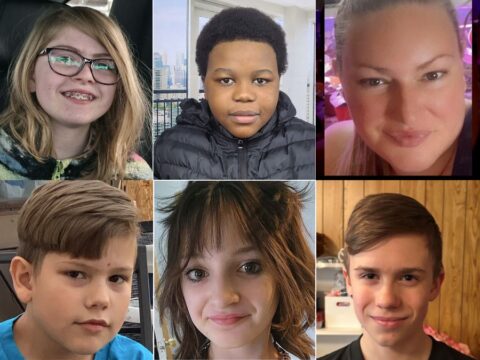Peter McGugan is on a mission to make peace with grief. The best-selling author and broadcaster (CTV, City TV, CBC), who grew up in London, Ont., and later worked in Toronto, recently launched an online resource library to build awareness around grief and help people move forward with their lives.
“Grief is wanting what you can no longer have and at the age of 30, I experienced a tsunami of loss,” McGugan says. “My two best friends died in the same month, and then many other losses followed. I needed help but I couldn’t find anything that spoke to what I was feeling.”
You may unsubscribe from any of our newsletters at any time.
Here, the creator of Grief to Gratitude shares three misconceptions about grief and ways we can start building a future after loss.
1. Time heals grief.
“No, time alone doesn’t heal,” McGugan says. “What time does is numb some of the symptoms of grief, but it doesn’t do the core healing.”
One technique, he says, is asking the soul of a loved one for permission to love living your life again. “To love living life isn’t forgetting or abandoning them; it’s bringing the best of what you shared to life again. That’s honouring them as you heal,” he says.
McGugan adds that you know you’ve healed when you can think of the person or thing you’ve lost and feel warmth and gratitude. “Most of us get a knife stab to the heart when we think back to what we’ve lost, and that’s an indication there is still pain to resolve. Too often we’re numbing sorrow with addictive substances.”
More on Broadview: On grief and the healing power of gardening
2) Grief is a way to stay connected to lost loved ones.
“I think we’ve been taught to honour lost ones by being the sorrow, by being the energy of the ending, by grieving them,” says McGugan. “We’ve been taught that to grieve is to honour, to connect with them. But really, what’s honouring them is love and gratitude for the sweet spots in time that we shared.”
McGugan recommends gratitude as the best path up out of the depths of grief. “Healing is to evolve from pouting about what you can’t have, to feeling gratitude for what you had and have — without guilt,” he says.
3) Grief is just a personal problem.
“Grief costs the economy billions of dollars in annual losses from absenteeism, accidents, sickness, addictions and unnecessary deaths,” McGugan says, though he sees a lack of acknowledgement, support and infrastructure for those who are experiencing it.
“I’m really hoping corporations and government will wake up to the fact that people need help. It’s a big deal. And where’s the safety net for those who are grieving? Who’s there to catch them?”
That gap is what McGugan has sought to fill with his Grief to Gratitude project.
“I tried to put every kind of helpful stepping stone I could find into Grief to Gratitude, whether it’s audio, meditation, or film. Because your breakthrough moments are going to be different than the person grieving beside you,” he says. “It’s like a puzzle where we come undone and we have to pull ourselves together again in new, wiser ways.”
Broadview is an award-winning progressive Christian magazine, featuring stories about spirituality, justice and ethical living. For more of our content, subscribe to the magazine today.















My misconception of grieving is being the one who tries to console. Unfortunately you can relate, but you can’t understand the griever, we are all different.
For some, you can’t say anything, you just need to be there. Others, they want the reassurance that they are not unique to a situation.
Three verses came to mind from this article and the three misconceptions.
Genesis 37:34-35 Then Jacob tore his garments and put sackcloth on his loins and mourned for his son many days. All his sons and all his daughters rose up to comfort him, but he refused to be comforted and said, “No, I shall go down to Sheol to my son, mourning.” Thus his father wept for him.
Philippians 3:13-14 Brothers, I do not consider that I have made it my own. But one thing I do: forgetting what lies behind and straining forward to what lies ahead, I press on toward the goal for the prize of the upward call of God in Christ Jesus.
2 Samuel 12:16-17 David therefore sought God on behalf of the child. And David fasted and went in and lay all night on the ground. And the elders of his house stood beside him, to raise him from the ground, but he would not, nor did he eat food with them.